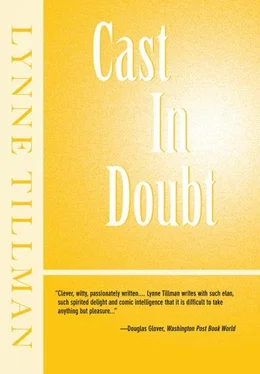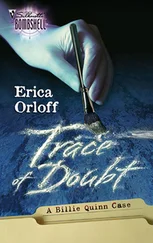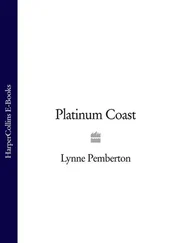John. The idea of him arouses in me a range of emotions, a mountain range of feelings, of highs and lows, a violent, lusty landscape, which can be quite uncontrollable. The one thing one cannot control is lust. But it is what we most often control, or are controlling most of the time, or are most controlled by. I don’t want to think of him, he is not on the map right now. He is not on my course, and I have not plotted him there. Isn’t it odd, the two significant meanings of plot — one having to do with a conspiracy, the other with a story. Perhaps all stories are conspiracies. But there, my paranoia is showing. I am happy to be alone.
In real life one cannot find the single, unmistakable, absolute event or fact that drives everything and everyone forward. It is, this motive, what makes a compelling if thin narrative, for the stories I particularly admire relish ambiguity and happenstance. One character meets another — the servant is there, so Raskolnikov must kill her as well. How does it take shape that someone, even someone like me, will do the unexpected? I hope to work these ideas into Household Gods. Is it now, at this precise moment, that I joke to myself about being off the road yet again?
It is well past lunchtime. I have arrived at a small village and spy a taverna that appears to be open. I pull up to the side of the road and park the car. I am not thinking anything special as I am hungry — famished — and a little tired. The owner leads me to a table on the terrace. A breeze blows and the air is fragrant and rich. It is more than comfortable here, it is pleasant, and its pleasure is ordinary, inexpensive. Overhead is a trellis, a grape arbor. All is as it should be. This taverna, this scene, is in no way extraordinary. It is, and I am, comfortable, yet something is missing.
I order grilled sardines, a salad, and a bottle of mineral water and the white wine I drink. Fortunately they have it. After one glass, I am tranquil. With the second glass, I am impatient and want more wine and, I suppose, action. John might put it that way. I can almost hear him pronounce it, can imagine his lips loosely forming the words. Horace, you want action, man. I do want something or want for something. For lack of a better word I will name this luck. If I were lucky, a Gypsy would appear and sit beside me at this table. As this does not happen, my meal is unadventurous and undisturbed. Even disappointing.
I drive toward the coast. I don’t care to stop or to make a detour. I see no strange encampments along the way. Had I chosen the faster way, I would already have been on the southern coast, quite near to the dot on Helen’s map which signified where she had probably gone. But I am not sure if that is the case, or if she had been the one to leave the map lying there, with its mark. Thinking about this is ludicrous, in one way and confusing in another. I drive, plagued by the uncertainty of it all, and of how this isn’t and wasn’t like me, to go flying off in pursuit of a mere girl, even one like Helen.
I am discouraged, but hasten to encourage myself to have patience. If Gwen were with me, no doubt she’d caustically remark that I need patience but need more to be the patient. I’d bet the conversation would take such a linguistic turn. I would bet that, were she here to take the bet. I swing around on the road, the road to Mandalay, to somewhere. I am indeed going somewhere.
Gwen says one always goes somewhere, even if it’s nowhere. She entered into psychoanalysis in the late 1960s, but rarely talks about it seriously, or at all, with me, in any case. It is another of her secrets. It may be something that she could share with Helen were she not so antipathetic to Helen, and why is that? Wouldn’t it be beyond coincidence if her analyst were Helen’s father? The idea excites me. Such a fact might easily have created in Gwen the extreme distrust and dislike of Helen she has. It is much too farfetched. It would serve a certain kind of plot. Or fate. Though I do not accept the concept of an externally derived or driven fate, I remind myself that the root of fate— fatum —and story— fabula —is the same, fari , which means “to speak,” and, in the past participle, “to be spoken.”
One cannot fail to see that there is a way in which a story and a fate proceed similarly, the causes for action or inaction lying within the character as well as within the environment, the conditions surrounding the characters, those the characters were born into. When the situation seems too unlikely, the reader will no longer willingly suspend disbelief, will not accept the outcome. The reader will demur: it does not seem that that could have happened. Didn’t the Victorians change the endings of particularly wrenching tragedies? In a sense, the story itself has a fate, which must be discovered or discerned first by the writer. Yes, that is so, I think. But Helen’s father as Gwen’s analyst wouldn’t do, except as a fantasy. I suppose I oughtn’t to have finished the wine. Still I did mix the wine with water. Fateri means to acknowledge, to confess or admit. Confession is rooted or yoked to fate and story, which makes ultimate good sense. Confession and admission — neither do I do easily or at all. Yet I know they are always a part of what I write, even if inadvertently.
I have no idea where I am and pull over to the side of the road to check the map again. I seem to be going in the right direction. I rarely get lost.
Arriving at Kissamos in just over an hour, or perhaps more — I am not timing myself — I decide against stopping. But I do enter the town and drive along several streets, to scan the scene and the people. The stores are similar to my town’s, though the town itself is smaller. Here people beep their horns rather too insistently.
Uninspired, I continue on my way. My mood shifts, swings down, and I am suddenly overcome by a vexatious idea: I will never find anything or anyone, not the Gypsy, certainly not Helen. I have been on this journey, this adventure, not even a day. It is like me to indulge in hopelessness, in a futility so great I could not imagine a future different from a lackluster present. (I note that future and futility may not have the same root, though future in Latin, futurus , means “that which will be,” which implies fate but not through its being spoken.) This limitation is probably why I am a writer. I do not want to confront the severe differences between what I would imagine and set on paper, and what I might find should I venture to live it, to act upon or to enact it. Mother called me a dreamer. She said it affectionately, even though she knew, as did I, that that very quality was what caused my father to abandon me, in a sense. My mother’s voice had a clear, bell-like tone. Dreamer, Horace, you’re such a dreamer, dear! Even now her words ring like the sweetest of chimes.
Oddly enough, reflecting this way restores me to a better frame of mind, because it is like me to think such things, depressing and poignant as they may seem to others. The familiar is a comfort, whatever that may be, the most inconsequential thing, something insignificant to anyone else. One often cannot explain it to others or even to oneself, still one knows it somehow. Something that would appear to be nothing to a friend is precisely the big nothing to oneself. Now that’s a good title, The Big Nothing, another one for Stan Green. I drive even more slowly so as to write it down.
The sight of the coast, too, restores my spirits, though I am wondering with some regularity by this time how Yannis is and whether or not Gwen has read my letter and how well or ill she will have taken its contents. Of course I cannot know this, and while it is useless for me to conjecture about it, I do. A particularly stirring view of sky, sea and mountain pricks my attention and I drive down a small road that will take me nearer it. This road is unpaved and rocky and I drive less than a mile, whereupon I reach a clearing and park the car. I get out, stretch my arms and legs, and allow myself the pleasure of contemplation. I am not certain where I am.
Читать дальше












